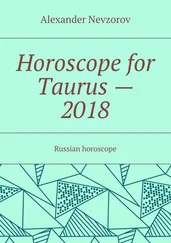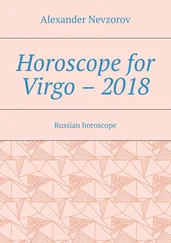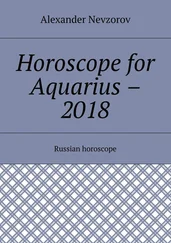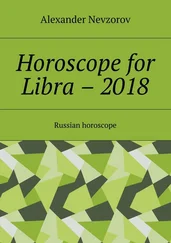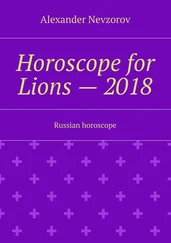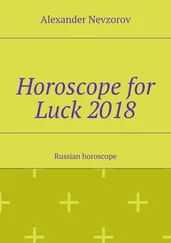I tried the public baths but found the smell and the general dirt too much for me. Any such excursion also meant a four- or five-hour wait in a queue before obtaining the doubtful privilege of attempting to get oneself clean. A chit showing that you had had a bath within the past few days was also required before one could take a ticket on a second-class train. A sensible precaution, as the seats in these trains were soft and provided only too convenient resting places for the "minor horrors of war." However, these chits were also readily obtainable on the black market! In the end I gave up the struggle to wash myself like a Russian and contented myself with washing in sections with the aid of a basin in the privacy of my own room. I at least knew then that any dirt I picked up was my own!
To run this block of fifty flats there was a staff of twenty-five: one "housemaster" and his secretary to control the staff and see that the tenants did not bring in unauthorised persons to share their flats; eight stokers and wood handlers; a plumber; an electrician; four lift attendants; four inside and two outside cleaners; and one guard in the courtyard to see that the washing was not stolen. At the end of the war when the generals returned home with their spoils of war, and after an armed robbery had occurred, two armed guards were added to patrol the place at night. (A general was entitled to one lorry load of loot and one private motorcar and with the return of the warriors our block became the wealthiest in the district.)
There have been complaints about the post-war crime wave in England but it is nothing to that which prevailed in Moscow when I was there. A large part of the city consisted of single-story log huts built long before the
Revolution and conforming to no street plan. These rookeries had been long scheduled for demolition and as a result no repairs had been carried out and the place, with a multitude of boltholes in, out, and around the crazy structure, provided an admirable hiding place for criminals. Indeed, effective control of the population there was so difficult and the number of gangsters harboured in them so great that during the time I was in Moscow these "Alsatias" were cordoned off by the militia between midnight and five in the morning. In addition there was a curfew from one to five and the streets were patrolled by cavalry who were inclined to shoot first and ask questions afterwards.
Crime was seldom if ever mentioned in the newspapers in Moscow, so that one knew only of those crimes which occurred in one's immediate neighbourhood. Never a week passed without one hearing of armed robbery, often accompanied by murder, in our district. The gangsters usually operated in large groups, one portion of the group committing the actual robbery and the rest manning the approaches to cover the getaway and often going so far as to put down holding fire to prevent the approach of any militia foolish enough to try to interfere. It was always impressed upon me that if ever I saw a robbery being committed- which, incidentally, would also include the clothes of the victim as well as the valuables- I was never to try to interfere as I was liable to be shot by the covering party.
During the war most of these gangsters were deserters (one division of Azerbaijan troops deserted during the winter of 1941-42 and terrorised the Moscow suburbs until the majority of them were rounded up). They were reinforced by deportees who had managed to escape from their guards on the way to labour camps and exile. I several times heard of whole trainloads of these overpowering their guards and then pillaging and ravaging the countryside. After the war the gangs received new blood in the form of demobilised soldiers who preferred a life of crime to the hunk of bread and handful of pickled cabbage which were the wages of industrial virtue. The most brutal of the gangs, which preferred on the whole to murder their victims as well as rob them, was the so-called "Polish Gang" which was alleged to consist of Polish deportees who had escaped and taken refuge in "Alsatia."
I am glad to say that I had no firsthand contact with these elements of disorder; my sole difficulty in Moscow arose out of a brush with the law.
On my arrival in Moscow the papers on which I had travelled were taken away and I had, for the first weeks, no sort of documentation at all. As a result Vera had warned me to take my walks in the back streets. After a bit, this prowling round the purlieus of Moscow did not suit me at all and, accompanied by the faithful- but protesting - Ivan, I went for a stroll down the Mojaisk Chaussee. Almost at once I was spotted by a plain-clothes- man as a suspicious character or a foreigner (in Russia the terms are almost synonymous) and he tipped off the first militiaman on the beat to ask for our papers. The militia in Russia take the place of the uniformed police in the West and they deal with "petty crime" up to and including murder. Major crimes such as political heresy, Trotskyism, etc., are dealt with by the N.K.V.D., now the M.V.D.
Ivan had previously told me that if we were picked up I was to refuse to answer any questions and to demand to be taken to the nearest militia post, whence he would telephone to the Centre and obtain our release. Accordingly on the militiaman's demand Ivan refused to make any reply. This was not at all according to plan as far as the rather dense militiaman was concerned, and he at once assumed that he had at last got hold of a real enemy of the state. Whipping out his automatic, he invited us to put up our hands, which we declined to do; he then whistled up a colleague who telephoned to the militia post for a car. We were kept at pistol point in the street for a good half hour before a big black Zis drew up and out of it jumped the smallest but quite the most ferocious plain - clothesman I have ever seen. Before he was out of the car he started firing questions at us, his five feet nothing quivering with eagerness. The whole impression was slightly marred as he was also adorned with an extremely handsome black eye, no doubt a legacy of some previous heresy hunt. He bundled us all into the car and we were whisked off to the nearest militia H.Q. for questioning.
Ivan at once demanded to be allowed to telephone, but this the little man would not allow and said that if Ivan gave him the number he would ring up. This in turn Ivan could not do as the number of the Centre, even though it was changed every month, could not be divulged to third parties. Matters appeared to be at a deadlock and Ivan was then taken off into another room and stripped and searched. His papers, which of course they then found, described him as an officer of the General Staff and gave his previous job, which had in fact been on the General Staff but quite unconnected with the Centre's work. As a result when the N.K.V.D. rang up his unit all that they could say was that he had left his job a little time before on a special assignment about which they knew nothing.
They then turned their attention to me. Our original interrogator was now joined by a female N.K.V.D. lieutenant colonel that had quite the most evil face I have ever seen. She was a complete contrast to her colleague. He, like many small men, was explosive and excitable and danced round the room as he roared out his questions. She was cold and expressionless and regarded me as a snake does a rabbit, and indeed there was something very reptilian in her appearance and approach.
My knowledge of Russian was extremely slight at that time but I did manage to gather that they wanted my name and address. I contented myself with cursing them in all the languages I knew and using all the words in my not un-extensive vocabulary. They did not appear impressed and I fear that it was wasted on them. In the end, enraged at the little man who thrust his face into mine, I cursed them both roundly in English, using the phrase usually rendered in polite society and print as "flick off." This had an immediate effect. My interrogators really thought that they were getting somewhere and at once wrote down on their paper "Name: Flick Off." I think they were somewhat impressed by the fact that I was well dressed and did not appear to be frightened of them, for they made no attempt to search me. After a further delay Ivan was allowed to dial the Centre's number himself and the N.K.V.D. were told that we were to be released unquestioned. About a quarter of an hour later a car arrived from the Centre and we were driven home by a roundabout route so that the militia post would not know where we lived. This in fact was a useless precaution as we had been arrested quite close to the flat and in my future walks abroad I frequently met the original militiaman who had arrested me and also his colleagues from the same post, who had all got to know of the mysterious foreigner who needed to have no papers. Whenever I saw them I was greeted with a broad grin and the salutation of "Good day, Comrade Flick Off."
Читать дальше




